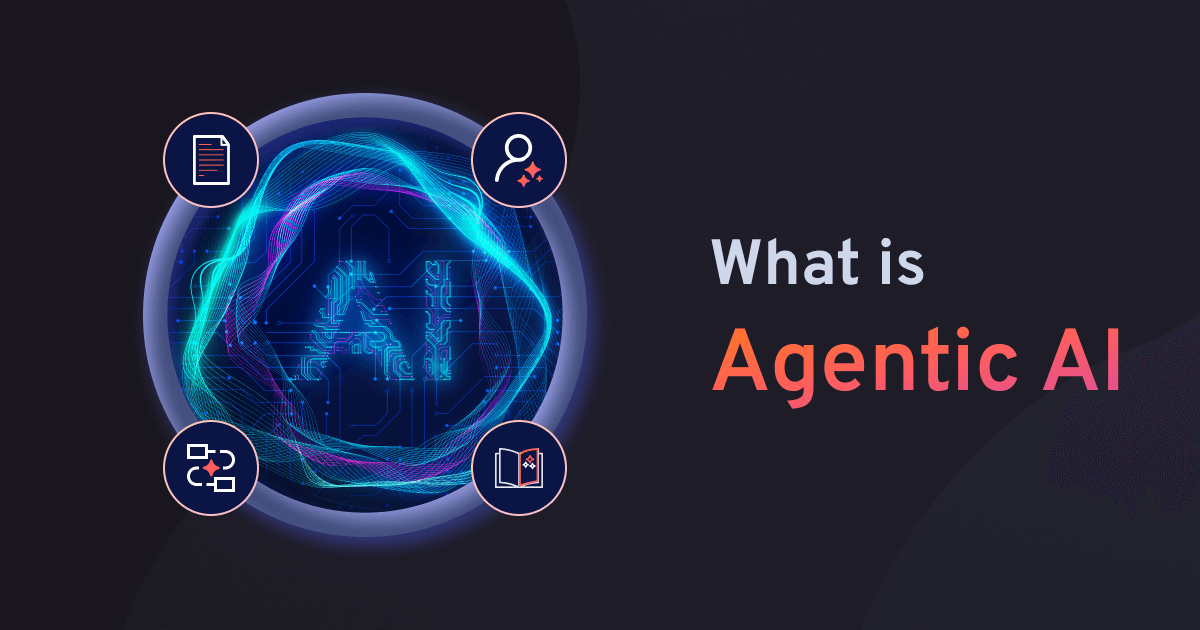Artificial Intelligence (AI) has undergone significant evolution since its inception, progressing from simple rule-based systems to complex machine learning models capable of performing intricate tasks. A notable advancement in this journey is the emergence of Agentic AI—AI systems endowed with autonomy, adaptability, and the capacity to make decisions with minimal human intervention. These intelligent agents are redefining business operations by automating complex processes, enhancing efficiency, and driving innovation across various industries.
This article delves into the transformative impact of Agentic AI on business operations, exploring its integration into enterprise systems, implications for strategic upgrades and governance, and real-world applications that underscore its potential.
Understanding Agentic AI
Agentic AI refers to AI systems designed to operate with a degree of autonomy, enabling them to assess situations, process data, make decisions, and execute tasks without constant human oversight. Unlike traditional AI models that rely heavily on predefined rules and require human intervention for decision-making, Agentic AI systems can learn from interactions, adapt to new information, and perform actions proactively. This autonomy allows businesses to automate complex workflows, optimize operations, and respond swiftly to dynamic market conditions.IBM Newsroom
Integration into Core Enterprise Systems
Integrating Agentic AI into core enterprise systems involves embedding these autonomous agents within existing business processes to enhance functionality and efficiency. This integration requires a strategic approach to ensure seamless collaboration between AI agents and human employees, as well as compatibility with current technologies.
Strategic Roadmap for Integration
A successful integration of Agentic AI necessitates a well-defined strategic roadmap that includes:
-
Assessment of Business Needs: Identifying areas where Agentic AI can add value by automating tasks, improving decision-making, or enhancing customer experiences.
-
Infrastructure Readiness: Ensuring that the existing IT infrastructure can support AI operations, including data storage, processing capabilities, and network security.
-
Data Management: Establishing robust data governance policies to maintain data quality, privacy, and compliance, which are critical for effective AI functioning.
-
Change Management: Preparing the organization for cultural and operational changes by providing training and fostering an environment that embraces AI-driven transformation.Forbes+1Teneo.Ai+1
By following this roadmap, businesses can effectively integrate Agentic AI into their operations, leading to enhanced efficiency and innovation.
Implications for Strategic Upgrades and Governance
The adoption of Agentic AI brings forth several considerations for strategic upgrades and governance within an organization.
Strategic Upgrades
Implementing Agentic AI may necessitate upgrades to existing systems and processes to accommodate the new technology. This includes investing in advanced analytics platforms, enhancing cybersecurity measures, and updating legacy systems to ensure compatibility with AI agents. Such upgrades are essential to fully leverage the capabilities of Agentic AI and to maintain a competitive edge in the market.Forbes
Governance Considerations
Effective governance is crucial to manage the risks associated with autonomous AI systems. Key governance considerations include:
-
Ethical AI Use: Establishing guidelines to ensure that AI agents operate within ethical boundaries and do not engage in biased or discriminatory practices.
-
Transparency and Accountability: Maintaining clear documentation of AI decision-making processes to facilitate transparency and hold the system accountable for its actions.
-
Regulatory Compliance: Ensuring that AI operations comply with relevant laws and regulations, particularly those related to data privacy and security.
Addressing these governance aspects helps in building trust and reliability in Agentic AI systems, paving the way for their successful deployment in business operations.monitaur.ai
Real-World Applications and Case Studies
The practical applications of Agentic AI are diverse, spanning multiple industries and functions. Several organizations have successfully implemented Agentic AI to enhance their operations:
-
Johnson & Johnson: Utilized AI agents to optimize chemical synthesis in drug discovery processes, accelerating research and development timelines. WSJ
-
Moody's: Employed multi-agent AI systems for financial analysis, enabling detailed and autonomous research capabilities. WSJ
-
eBay: Implemented AI frameworks to assist in code writing and generate marketing content, tailoring interactions based on user engagement. WSJ+1time.com+1
-
Deutsche Telekom: Deployed AI to answer employee queries and automate tasks such as HR leave requests, enhancing internal operational efficiency. WSJ
-
Cosentino: Leveraged a digital workforce of AI agents to address customer service needs, reallocating human staff to more strategic roles. WSJ
These examples demonstrate the tangible benefits of Agentic AI in automating complex tasks, improving efficiency, and enabling employees to focus on higher-value activities.
Challenges and Considerations
While the benefits of Agentic AI are substantial, organizations must navigate several challenges to ensure successful implementation:
-
Data Privacy and Security: Ensuring that AI agents handle sensitive information responsibly and comply with data protection regulations.
-
Integration Complexity: Seamlessly integrating AI agents with existing systems and workflows without disrupting operations.
-
Skill Gaps: Addressing the need for specialized skills to develop, manage, and maintain AI systems.
-
Ethical and Bias Concerns: Mitigating biases in AI decision-making processes and ensuring ethical use of AI technologies.
By proactively addressing these challenges, businesses can maximize the benefits of Agentic AI while minimizing potential risks.
Future Outlook
The trajectory of Agentic AI points toward increasingly sophisticated and autonomous systems capable of handling complex business operations. As technology advances, we can anticipate broader adoption across industries, leading to more innovative applications and enhanced operational efficiencies. Organizations that strategically invest in Agent.
Written by: HyperXpedia™

